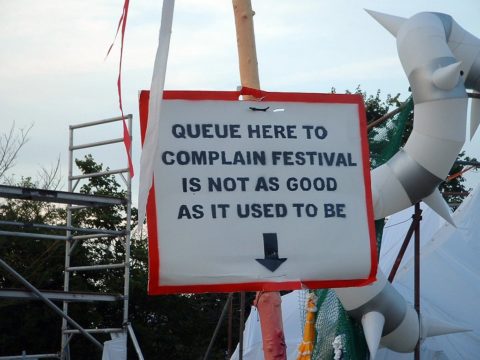 John: Among the American Indians of the Pacific Northwest, there is a custom called “potlatch”. A potlatch is a feast commemorating a birth, a death, a wedding, or a communal ritual occasion. It has all the usual feast stuff — singing, dancing, drunken revelry, recitation of epic poems and renewal of ancient grudges — but there’s one additional feature to a potlatch that might be less familiar to our readers. As the party reaches its climax, the host of the potlatch reveals a collection of valuables: artisanal handicrafts, or precious items made from bone and ivory, culinary delicacies, alcohol, artworks, the rarer and more valuable the better. And then, all these treasures are heaped into a pile and burned in a giant bonfire.
John: Among the American Indians of the Pacific Northwest, there is a custom called “potlatch”. A potlatch is a feast commemorating a birth, a death, a wedding, or a communal ritual occasion. It has all the usual feast stuff — singing, dancing, drunken revelry, recitation of epic poems and renewal of ancient grudges — but there’s one additional feature to a potlatch that might be less familiar to our readers. As the party reaches its climax, the host of the potlatch reveals a collection of valuables: artisanal handicrafts, or precious items made from bone and ivory, culinary delicacies, alcohol, artworks, the rarer and more valuable the better. And then, all these treasures are heaped into a pile and burned in a giant bonfire.
The point, of course, is to show off how rich you are by showing off how much crystallized labor you are able to destroy. This pattern is not an uncommon one across human societies — a lot of human and animal sacrifice, while ostensibly religious in motivation, has this sort of showing off as an undertone. But what makes the potlatch especially interesting is its competitive nature. The Indians believe that as the goods are consumed by the blaze, every other wealthy man is “shamed” unless he comes back and burns objects of equal or greater value. It’s value destruction as a contest, like a dollar auction for status where the final price is set on fire rather than being paid to somebody, a negative-sum machine for destroying economic surplus.
Good thing our culture is way too civilized to do anything like that.
I don’t remember when it was that you told me I had to read this book about VIP “models and bottles” service at nightclubs, but I’m glad you did because it’s sort of like the Large Hadron Collider but for human social practices. By analyzing behavior under these extreme conditions, certain patterns that are normally obfuscated (often deliberately so) emerge with stark clarity. Much of your research focuses on “disreputable exchange” — the ways people buy and sell things while hiding the fact that they’re buying or selling something. Have you been able to get the NSF to pay for a night out in South Beach yet?
Gabriel: I should start off by disclosing that I’m friends with Ashley. However I don’t think that biases my opinion since the reason we are friends is that I admire her work.
Potlatch is one of the most interesting cultural practices in the world and the keystone upon which both economic anthropology and economic sociology are built. Indeed, you left out just how amazing it is in that not only did the native peoples of the Pacific Northwest destroy property in the form of salmon, blankets, and copper; but also wealth in the form of human beings, as they would use the occasion to both free and kill slaves. To us 21st century WEIRD Americans, murdering a slave and manumitting a slave seem like opposites, because manumission is humane and human sacrifice is brutal. But from the logic of status competition, they are alike in that both demonstrate that one is so wealthy that one can afford to give up the value of some of one’s slaves. Thus we see that not only the Tlingit but also the Romans would both murder and free slaves in funerary contexts.1 Patterson’s Slavery and Social Death has some very interesting material on this and is generally the greatest work of comparative scholarship on economic institutions since Max Weber — I hope to review it with you or Jane some day.
Now imagine it’s your job to describe one of the most interesting things to have ever happened, a ritual of passive-aggressively inviting rivals to parties that gavage your guests and culminate in wealth bonfires and human sacrifice, and the only thing you find worth emphasizing about it is how mean the Canadian government was to suppress the practice. This is how the Gene Autry Museum here in Los Angeles describes it, and you see similar emphasis at other museums that follow the curatorial heuristic of maximizing pious status redistribution and involvement of the descendants of the community being described, while avoiding at all costs anything that would serve as such a near occasion of awesome as to lead your internal monologue to roll tape for the Basil Poledouris score to Conan the Barbarian.
So now that we know what potlatch 1.0 is, why do I describe the models and bottles scene as a douchebag potlatch? There’s no human sacrifice, and the rivalry is a bit more friendly, but otherwise bottle service has a lot in common with a traditional potlatch. Most obviously, it is a ritual of competitive feasting where powerful men show off how much they can waste. The nightclubs are well aware of this and actively encourage “bottle wars”, where different tables compete to see how many bottles they can order. The service the club offers is not intoxication, but the spectacle of other clubgoers (and the home audience on Instagram) seeing how much the customer can spend. And so they don’t merely send a busboy or a waitress to quietly deliver the bottle, as would be the case at Applebee’s, but a bottle girl carrying bottles festooned in sparkler fireworks and, in one particularly decadent instance, the manager dressed as a gladiator and riding a chariot pulled by busboys. And once the bottles are drained, the bottles remain at the table. At a normal bar or restaurant, uncleared dishes would be a sign of lazy staff, but at a bottle service club the debris is an accumulating trophy that makes visible to all the consumer’s glorious expenditure.2
John Psmith and Gabriel Rossman, “GUEST JOINT REVIEW: Very Important People, by Ashley Mears”, Mr. and Mrs. Psmith’s Bookshelf, 2024-03-04.
1. Gladatorial ludi were originally funerary in nature. And we know from the Lex Fufia Caninia that by 2 BC funerary manumission was considered to be in such an escalatory spiral that it would ruin estates absent sumptuary laws limiting the practice.
2. Another example of garbage as testament to the host’s opulent generosity is the “unswept floor” mosaic motif common to many Hellenistic and Roman triclinia.

















